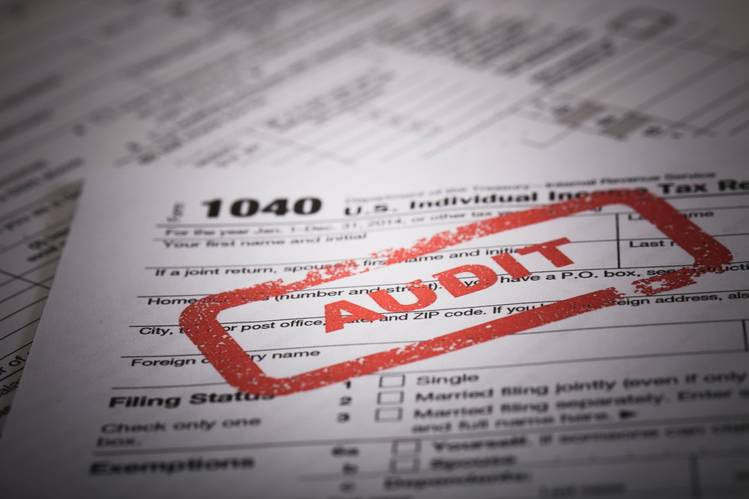Having a little understanding of what an IRS audit is and how the Internal Revenue Service (IRS) works is essential for business owners and other taxpayers.
An IRS audit examines a company’s or individual’s records and financial information to ensure all the documents and tax amounts reported are accurate and follow tax laws. Some audits are minor inconveniences, whereas others are time-consuming.
In case the IRS audits your tax return, it will inspect closely to see if you reported all of your income and claimed only the deductions and credits permitted by law. 
IRS selection methods
The IRS uses different methods to select organizations and individuals for audits.
1: Random selection and computer screening
On occasions, returns are selected based only on a statistical formula, comparing your tax return against “norms” for similar returns. As part of the IRS’s National Research Program, they established these “norms” based on audits of a statistically valid random sample of returns. The IRS uses this software to update return selection details.
2:Possible participants involved in abusive tax avoidance transactions
Some returns are chosen based on the IRS data to classify promoters and participants in abusive tax avoidance schemes.
3: Information matching
Some returns are evaluated because the tax return income does not match the income reported on payer reports, like Forms W-2 from employers or Form 1099 interest statements from banks.
4: Related examinations
They may choose your returns if they include issues or transactions with other taxpayers whose returns have been chosen for an audit, such as business partners or investors.
5: Other:
The IRS may identify returns for examination in connection with local compliance projects. These projects need a higher management approval level and deal with areas like return preparers, local compliance initiatives, or specific market segments.
The IRS typically has three years from when you file your return to initiate and complete an audit. The IRS usually begins tax audits a year after you file your return and completes them in less than a year.
The IRS conducts three types of audits on tax returns:
– Field audit, In-person, at your home or business
– Correspondence audit, by mail
– At an IRS office
The interview to review your records may be at an IRS office or at the taxpayer’s home, place of business, or accountant’s office. Either way, the IRS will contact you initially by mail. Often, the first mail will confirm which aspects of the tax return are being scrutinized.
How to respond to an IRS audit?
An audit notice will give you 30 days to respond. Do not put off responding to a letter because the time you ignore it, the amount you owe the IRS will grow in interest.
Mail audits are limited to a few items on the audit letter you received from the IRS. Office and field audits require more work. You’ll need to collect the IRS’s requested information/documents and be ready to answer detailed questions about your finances. You should prepare the paperwork, figure out the problem, and decide if you want representation.
You may be required to bring the following documents:
– Receipts
– Brokerage statements
– Previous tax returns
– Retirement account records
– Pay stubs
– Home mortgage statements
– Canceled checks
– Legal papers like, divorce settlements including custody agreements, criminal or civil defense papers, property acquisition, tax preparation or advice
– Loan agreements
– Employment documents
– Schedule K-1
– Theft or lost documents
The IRS accepts electronic records that are produced by tax software. The IRS may request those instead of or in addition to other types of records. It’s essential to know that you should send only copies, not original papers.
Classifying the records you present to the IRS will speed the process and prevent errors or misunderstandings. Organize them by year and type of income or expense, and include a summary of transactions.
After you send your documents, you may always request a confirmation for any delivery service you may use that the IRS has received them.
In case you need more time to respond to an audit conducted by mail, the IRS can grant you a one-time automatic 30-day extension, you can request it to the address shown on the IRS letter. . If your audit is being handled in person, request an extension from the auditor assigned to your audit.
What happens next?
If the IRS assumes that your return needs to be adjusted, it will begin asking more questions. You’ll get an Information Document Request, which you must complete and return by the deadline.
An audit can be concluded in three ways:
- No change: an audit in which the documents being reviewed and there’s no change.
- Agreed: an audit where the IRS suggested changes, and you understand and agree with them.
- Disagreed: an audit where the IRS has suggested changes, and you understand but disagree with them.
You have 30 days to file an appeal with the IRS Office of Appeals if you disagree with the findings. After 30 days, the IRS will send you a letter, called a Statutory Notice of Deficiency. This letter closes the tax audit and allows you to petition the U.S. Tax Court.
Knowing how much you should pay in taxes can help you evaluate if your taxes have properly complied. We suggest hiring an experienced professional to help you with the process. We can also help you if you need a cryptocurrency tax specialist.


Recent Comments